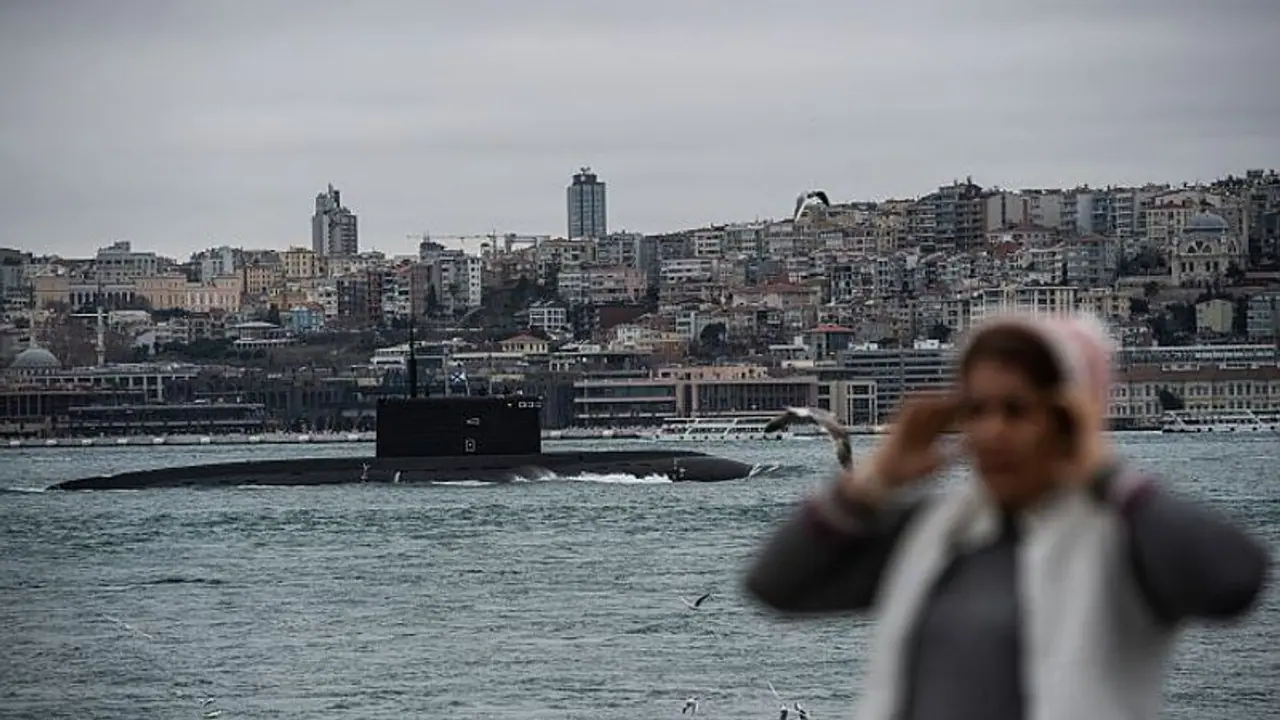Experts tells Asianet News about the significance of the Black Sea amidst the Russia-Ukraine conflict that began a couple of months back, drawing attention from the global community.
With Russia carrying out a military operation against Ukraine through air and land, the Black Sea that shares a border with 12 countries has once again emerged as a potential flashpoint after a century between Moscow and Kiev.

It is pertinent to mention that the Black Sea and the Sea of Azov had become a bone of contention between the two neighbouring countries since 2014 when Russia annexed Crimea. Russia had seized three Ukrainian naval vessels in 2018 and also sank several of its ships.
A day ago, Kiev had requested Turkey to close the airspace and seaways for Russian aircraft and warships. But Turkey did not pay any heed to the request so far.
Currently, Russia has deployed 18 warships in the Black Sea which led to disruption in Ukraine's maritime trade. It had to shut its seaports operations. The merchant vessels operators refused to sail into the Ukrainian waters.
As per experts, Kiev is hugely dependent on its coastline for trade. Over half of the country's trade is being done through the sea.
Russian armed forces have launched missile attacks on the Ukrainian port of Odessa. It is said to be the busiest port and largest oil and gas terminal.
Asianet News spoke to experts about the significance of the Black Sea amidst the Russia-Ukraine conflict that began a couple of months back, drawing attention from the global community.
Dr Swasti Rao, Associate Fellow, Manohar Parrikar- Institute for Defence Studies and Analyses (MP-IDSA)
"The black sea is a very sensitive region for Russia, Ukraine and Turkey. It is also the region that has the Crimean peninsula. The headquarter of Russia's black sea fleet are in Crimea’s Sevastopol.
Ukraine has requested Turkey, which shares a maritime border with Ukraine and Russia in the Black Sea and has good relations with both, to close the airspace as well as two waterways that Turkey controls. Turkey has not responded.
Also Read: Russia-Ukraine war: ‘Mom, Dad, I love you’, Ukrainian soldier’s last message to parents
Under the 1936 international convention, Turkey has control over the Bosphorus and Dardanelles straits and can limit warship passages during wartime or if threatened.
Ukraine's ambassador to Turkey has requested Turkey to close the two waterways that are close to Russia's Black Sea fleet stationed at Sevastopol in Crimea. Before the aggression started, six Russian warships and a submarine transited the Dardanelles and Bosphorus Straits to the Black Sea for naval drills near Ukraine waters as per the official stand of Moscow.
Ukraine is afraid of Russia's military aggression from the sea.
This brings us to the strategic location of Crimea as Crimea is strategically important as a base for the Russian navy. The Black Sea Fleet has been based on the peninsula since 1783. The fleet’s strategic position was key in helping Russia defeat Georgia in the South Ossetia war in 2008, and remains crucial to Russian security interests in the region.
Also Read: Russia invades Ukraine: Why Putin's blueprint reminds of Hitler's strategy
Important to note that the fleet has been stationed in the Crimean Peninsula even before Russia annexed it in 2014. The annexation further gave Russia a military edge. Crimean annexation has enabled Russia to re-establish its military dominance in the Black Sea and the Mediterranean region."
Vivek Singh, Assistant Professor, University of Delhi
"Black Sea bordered 12 States including Russia, Crimea, Turkey, Romania, Moldova, Ukraine, Bulgaria among others. The coastal zone around these Eastern European inland water bodies is densely populated by roughly 16 million people and another 4 million tourists each year.
Russia's approach to the Black Sea builds on a centuries-old history of confrontation with Europe's major powers. Its goal includes warding off any threat from NATO, either to the Russian heartland or its strategic bastion in Crimea.
It also wants to undermine NATO cohesion by trying to stoke fissures between alliance members along the Black Sea and to prevent Ukraine and other erstwhile USSR countries from joining the alliance."
Also Read: Russia-Ukraine war: How hike in crude oil price will impact India, and common man
Dr Abhishek Srivastava, Assistant Professor of Diplomacy & Disarmament at Jawaharlal Nehru University
"Economy and politics make the Black Sea a strategic significance for the bordering countries like Bulgaria, Georgia, Romania, Russia, Turkey, and Ukraine.
Interestingly, out of six countries, three are permanent members of NATO, and two are aspiring to become.
Russia's trade route is dependent upon the Black Sea to transport goods and energy to littoral countries. Black Sea Fleet is truly a substantial asset for Russia after the unification of Crimea.
And in the future, it could also be a point of conflict as the power of this fleet can be further boosted by the Caspian Flotilla which is connected to the Black Sea via the Volga-Don canal."
